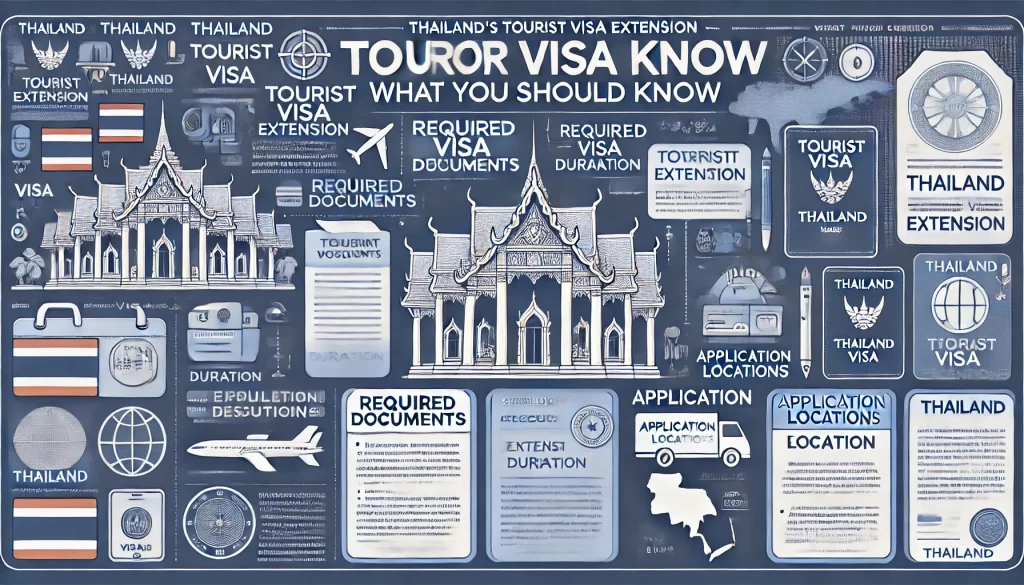Are you caught up in the mesmerizing charm of Thailand, wishing you could extend your stay in the Land of Smiles? 🇹🇭✨ You’re not alone! Many travelers find themselves enchanted by Thailand’s vibrant culture, stunning beaches, and warm hospitality, only to realize their visa is about to expire. But don’t pack your bags just yet!
Navigating the visa extension process in Thailand can seem daunting, but it doesn’t have to be. Whether you’re savoring the street food in Bangkok, exploring ancient temples in Chiang Mai, or lounging on the beaches of Phuket, understanding how to legally extend your stay is crucial. From deciphering the types of tourist visas to knowing the step-by-step extension process, we’ve got you covered.
In this comprehensive guide, we’ll walk you through everything you need to know about extending your tourist visa in Thailand. We’ll explore the reasons why you might need an extension, the potential challenges you could face, and even discuss alternatives if extension isn’t an option. So, let’s dive in and unravel the mysteries of Thailand’s tourist visa extension process, ensuring your Thai adventure continues without a hitch! 🌴🛂
Understanding Thailand’s Tourist Visa
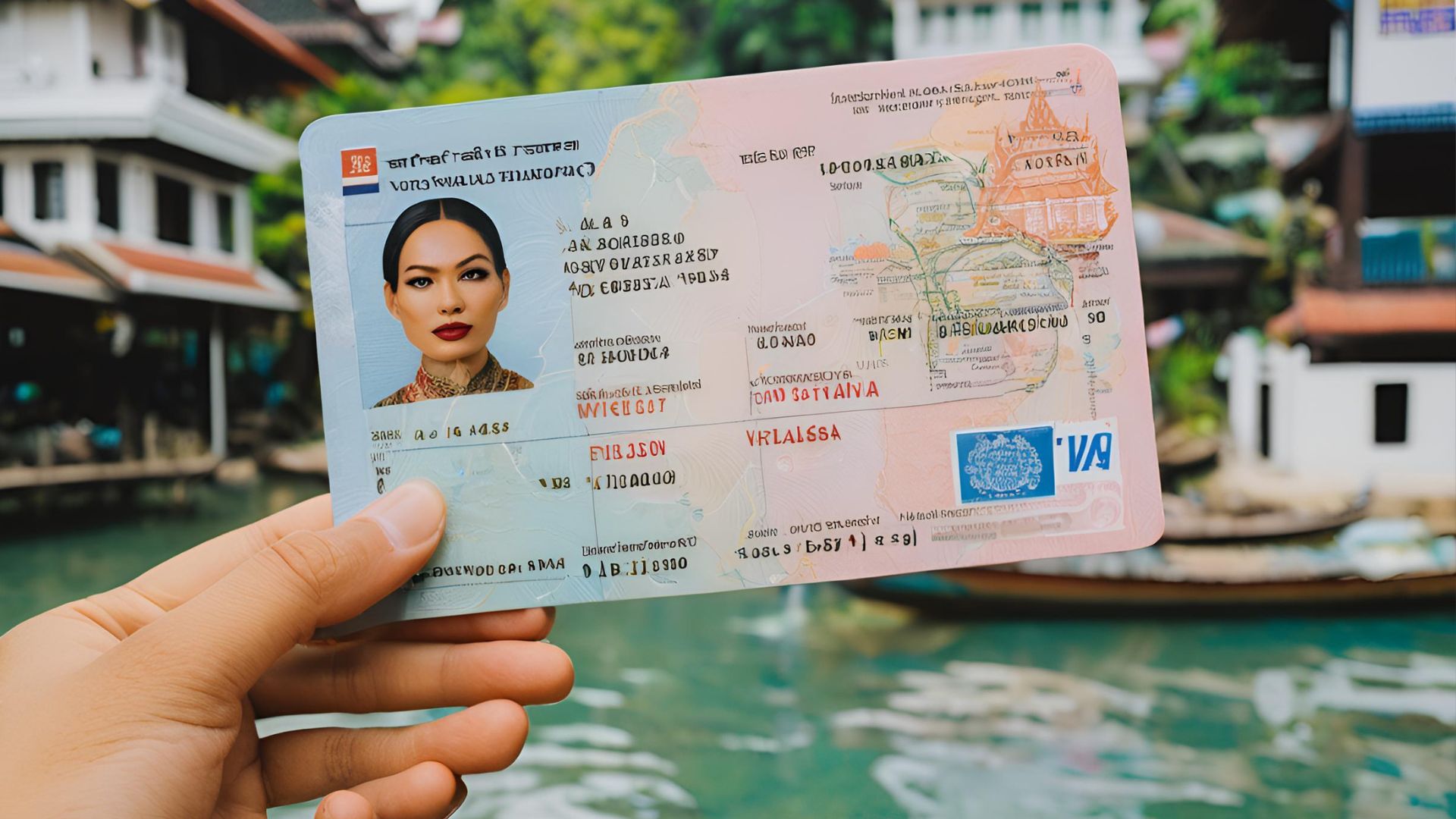
Types of tourist visas available
Thailand offers several types of tourist visas to accommodate different travel needs:
- Visa Exemption
- Visa on Arrival (VoA)
- Tourist Visa (TR)
- Special Tourist Visa (STV)
| Visa Type | Duration | Eligibility |
|---|---|---|
| Visa Exemption | 30-45 days | Select countries |
| Visa on Arrival | 15 days | Select countries |
| Tourist Visa | 60 days | Most nationalities |
| Special Tourist Visa | Up to 270 days | Limited availability |
Initial duration of stay
The initial duration of stay varies depending on the type of visa:
- Visa Exemption: Typically 30 days, extended to 45 days for some nationalities
- Visa on Arrival: 15 days
- Tourist Visa: 60 days
- Special Tourist Visa: 90 days, renewable twice
Eligibility criteria
To be eligible for a Thai tourist visa, applicants must generally meet the following criteria:
- Valid passport with at least 6 months validity
- Proof of sufficient funds (typically 10,000 THB per person or 20,000 THB per family)
- Confirmed return ticket or onward travel plans
- No criminal record or history of overstaying in Thailand
Additional requirements may apply depending on the specific visa type and the applicant’s nationality. It’s crucial to check with the nearest Thai embassy or consulate for the most up-to-date information and requirements before applying for any tourist visa.
Reasons for Visa Extension
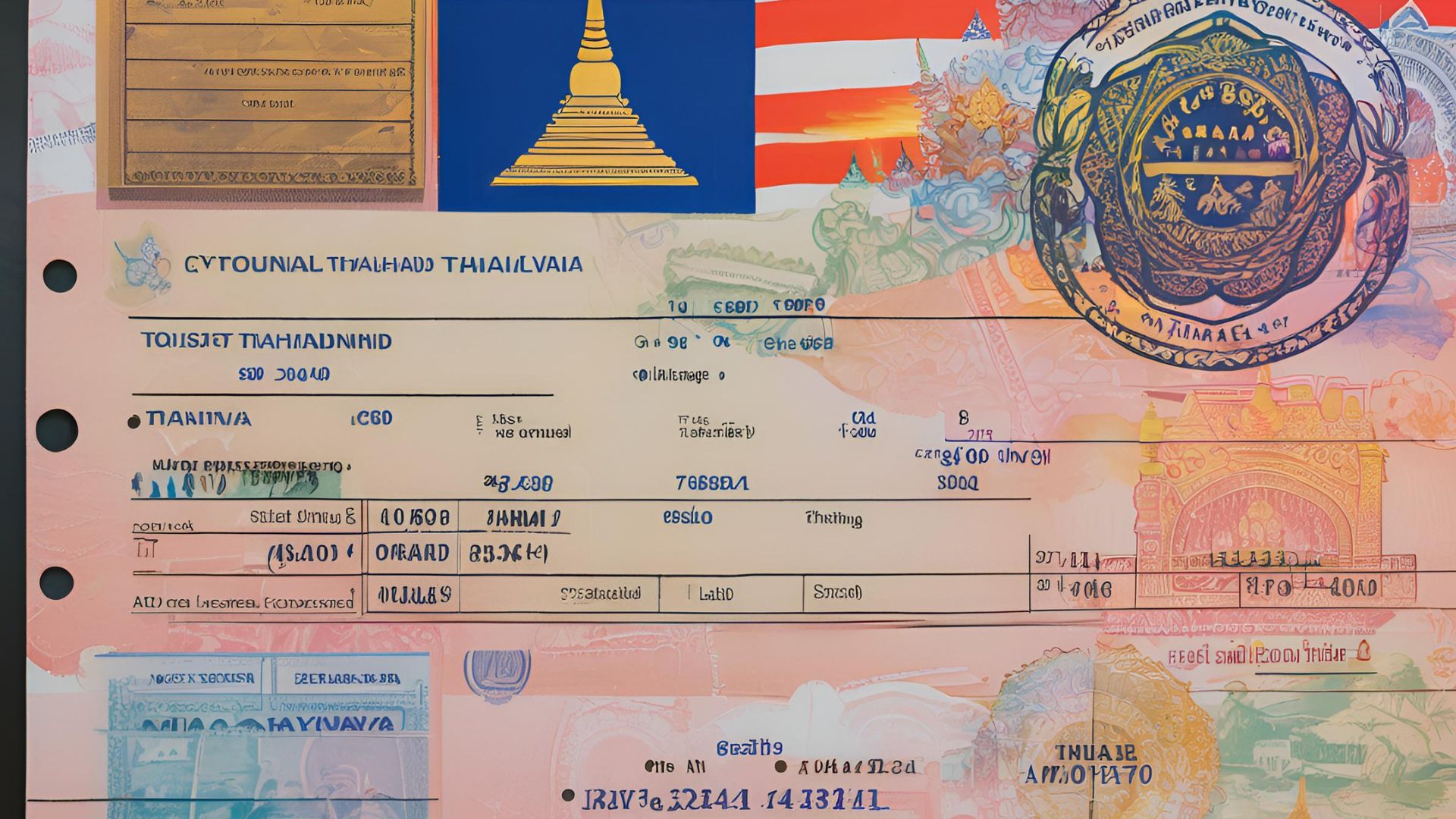
A. Prolonged travel plans
Many travelers find themselves enchanted by Thailand’s vibrant culture and breathtaking landscapes, leading to a desire to extend their stay. Whether it’s to explore more islands, immerse in local traditions, or simply soak up the laid-back atmosphere, prolonged travel plans are a common reason for visa extensions.
| Reason | Example |
|---|---|
| Island hopping | Discovering hidden gems in the Andaman Sea |
| Cultural immersion | Participating in local festivals or meditation retreats |
| Slow travel | Taking time to explore off-the-beaten-path destinations |
B. Medical emergencies
Unexpected health issues can arise during travel, necessitating a visa extension. Thailand’s world-class medical facilities often attract tourists seeking treatment or recovery time.
C. Unforeseen circumstances
Life is unpredictable, and various situations may require an extended stay:
- Natural disasters or travel disruptions
- Lost or stolen passports
- Sudden changes in personal circumstances
D. Business opportunities
Thailand’s growing economy presents unexpected business prospects for some visitors. Extending a tourist visa allows time to:
- Explore potential investments
- Attend business meetings or conferences
- Conduct market research
Now that we’ve explored the reasons for visa extensions, let’s delve into the actual process of extending your stay in Thailand.
Visa Extension Process
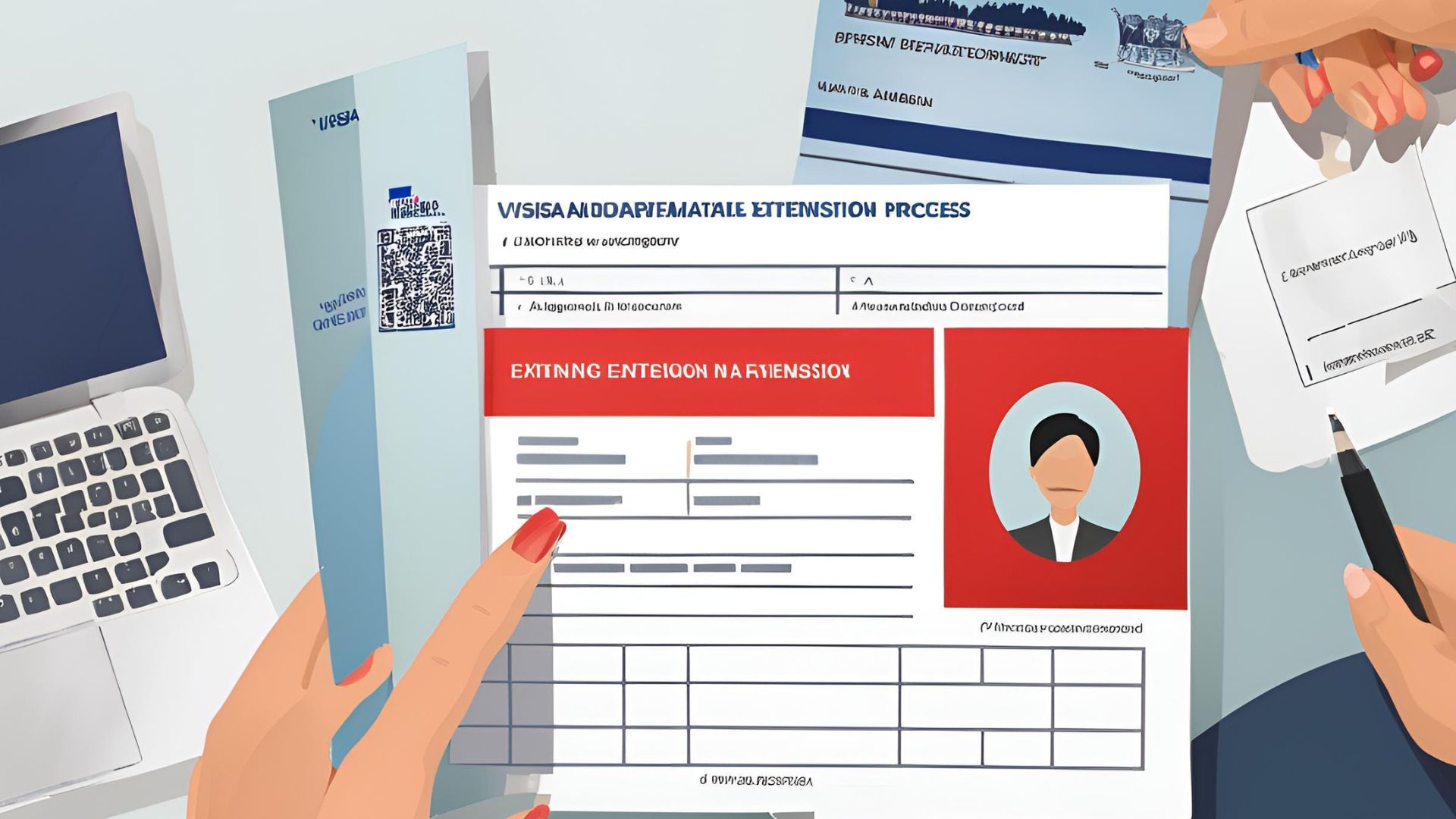
A. Where to apply
To extend your tourist visa in Thailand, you must visit a local immigration office. The most common location is the Immigration Bureau in Bangkok, but there are offices in other major cities and tourist destinations. Here’s a quick overview:
| City | Immigration Office Location |
|---|---|
| Bangkok | Chaeng Watthana Government Complex |
| Chiang Mai | Promenada Resort Mall |
| Phuket | Phuket Immigration Office, Phuket Town |
| Pattaya | Jomtien Beach Road |
It’s crucial to apply at the office in the province where you’re staying. Check the official Thai Immigration website for the most up-to-date information on office locations and operating hours.
B. Required documents
When applying for a visa extension, you’ll need to provide:
- Completed TM.7 form
- Passport with valid visa
- One 4x6cm photograph
- Proof of accommodation (TM.30 form)
- Departure card (TM.6)
C. Application fees
The standard fee for a 30-day tourist visa extension is 1,900 Thai Baht. This fee is payable in cash at the immigration office. Always keep your receipt as proof of payment.
D. Processing time
Processing times can vary depending on the office and season. Generally, you can expect:
- Same-day processing in most cases
- 2-3 business days during peak seasons
It’s advisable to apply for your extension at least a week before your current visa expires to avoid any complications.
E. Maximum extension period
The maximum extension period for a tourist visa is typically 30 days. This means:
- If you entered on a 30-day visa exemption, you can extend for 30 days
- If you have a 60-day tourist visa, you can also extend for an additional 30 days
Remember, extensions are granted at the discretion of immigration officials. Always ensure you have a valid reason for your extended stay.
Common Challenges and Solutions

Dealing with language barriers
Language barriers can be a significant hurdle when extending your Thai tourist visa. Here are some effective solutions:
- Use translation apps: Install apps like Google Translate or iTranslate on your smartphone.
- Hire a local translator: Consider hiring a professional translator for important documents.
- Learn basic Thai phrases: Familiarize yourself with common Thai expressions related to visa extension.
| Phrase | Thai | Pronunciation |
|---|---|---|
| Visa extension | ขอต่ออายุวีซ่า | Khor tor aa-yu visa |
| Immigration office | สำนักงานตรวจคนเข้าเมือง | Sam-nak-ngaan truat kon khao muang |
| Passport | หนังสือเดินทาง | Nang-sue dern-tang |
Navigating bureaucratic procedures
Thai bureaucracy can be complex. Here’s how to navigate it effectively:
- Research thoroughly: Understand the exact requirements before visiting the immigration office.
- Prepare all documents: Organize your paperwork meticulously to avoid multiple trips.
- Arrive early: Immigration offices can get busy, so be there when they open.
- Be patient and polite: Thai culture values politeness and a calm demeanor.
Handling unexpected delays
Delays are common in visa extension processes. Here’s how to manage them:
- Build buffer time: Start the extension process well before your current visa expires.
- Stay informed: Follow official immigration channels for updates on processing times.
- Have a backup plan: Consider alternatives like a visa run if delays threaten to extend beyond your current visa.
Now that we’ve addressed common challenges, let’s explore alternatives to visa extension for those who may need to stay in Thailand longer than initially planned.
Alternatives to Visa Extension
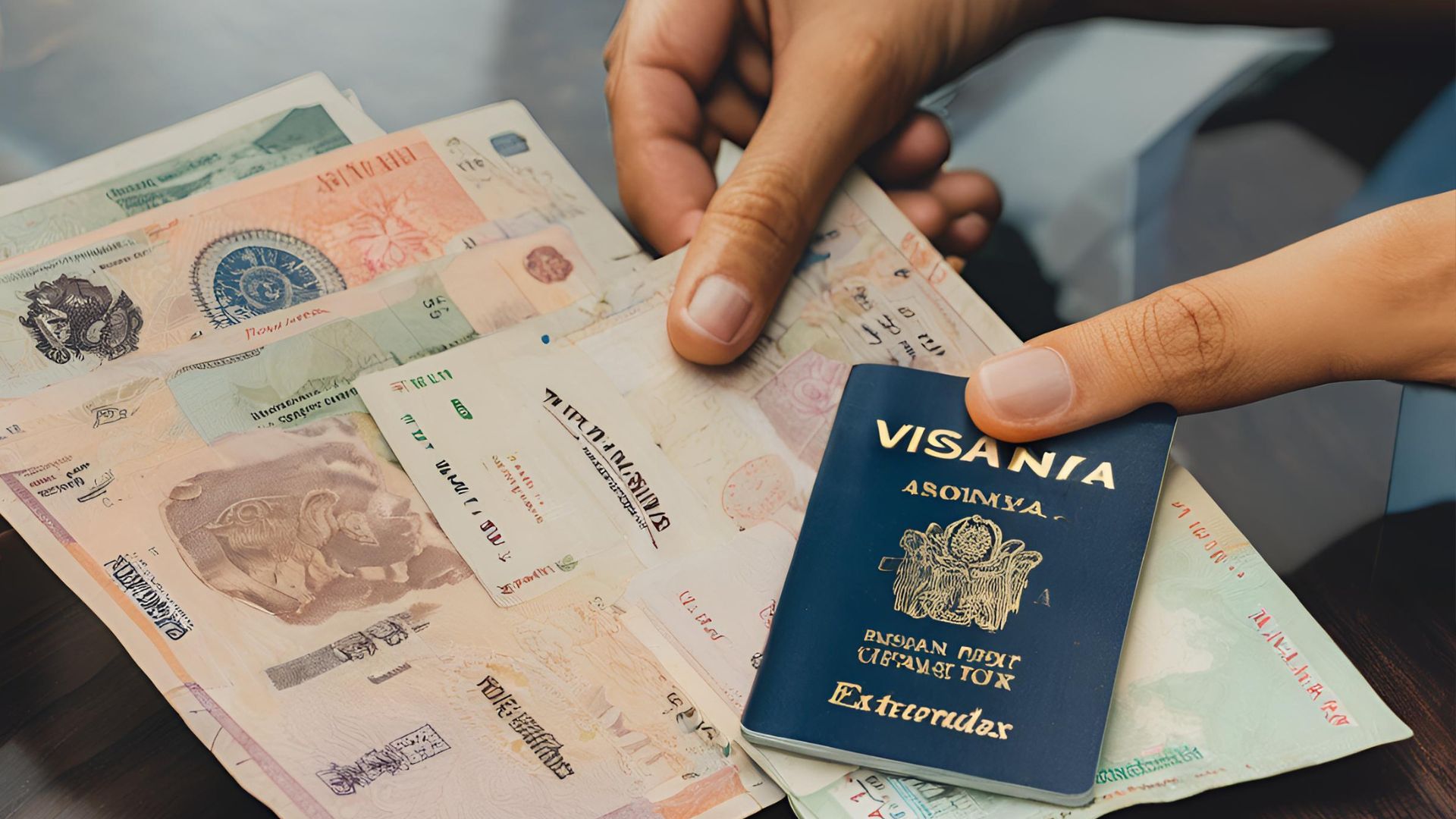
A. Visa runs
Visa runs, once a popular option among tourists, have become less feasible in recent years. This practice involves leaving Thailand briefly to obtain a new visa or entry stamp. However, Thai authorities have tightened regulations to discourage this method.
| Pros of Visa Runs | Cons of Visa Runs |
|---|---|
| Quick solution | Increasingly restricted |
| Allows short-term stay extension | May be viewed negatively by immigration |
| Opportunity to visit neighboring countries | Can be costly and time-consuming |
B. Switching to other visa types
For those planning to stay in Thailand long-term, switching to a different visa category might be a more suitable option. This could include:
- Non-Immigrant B Visa (for business or employment)
- Education Visa (for studying Thai language or other courses)
- Retirement Visa (for those over 50 years old)
C. Leaving and re-entering the country
Another alternative is to complete your stay, leave Thailand, and then re-enter on a new tourist visa or visa exemption. This option:
- Resets your allowed stay period
- Allows you to explore other countries in the region
- Provides a fresh perspective on your Thai experience
When considering these alternatives, it’s crucial to assess your long-term plans in Thailand. Each option has its own set of requirements and implications, so careful planning is essential. Next, we’ll explore the legal consequences of overstaying your visa, which underscores the importance of maintaining valid status in the country.
Legal Implications of Overstaying

Fines and penalties
Overstaying your visa in Thailand can lead to serious consequences. The Thai government imposes strict fines for those who remain in the country beyond their authorized stay. Currently, the penalty stands at 500 baht per day of overstay, with a maximum fine of 20,000 baht.
| Duration of Overstay | Fine (in Thai Baht) |
|---|---|
| 1-10 days | 500-5,000 |
| 11-40 days | 5,500-20,000 |
| 41+ days | 20,000 (maximum) |
Impact on future visits
Overstaying can significantly affect your ability to return to Thailand in the future. The severity of the impact depends on the length of your overstay:
- Short overstays (less than 90 days): May result in heightened scrutiny during future visa applications
- Longer overstays: Can lead to temporary or permanent bans from entering Thailand
Deportation risks
For more severe cases of overstay, particularly those exceeding 90 days, deportation becomes a real possibility. The consequences of deportation include:
- Immediate removal from the country
- A ban on re-entry for a specified period (typically 1-10 years)
- Being blacklisted in immigration databases
- Potential difficulty obtaining visas for other countries
Given these serious repercussions, it’s crucial to adhere to visa regulations and seek proper extensions when necessary. The next section will provide valuable tips to ensure a smooth visa extension process, helping you avoid these legal complications altogether.
Tips for a Smooth Extension Process

Planning ahead
Planning ahead is crucial for a smooth visa extension process in Thailand. Here are some key steps to consider:
- Research the extension requirements well in advance
- Gather necessary documents before your current visa expires
- Schedule your extension appointment early to avoid last-minute stress
| Timeline | Action |
|---|---|
| 2-3 weeks before expiry | Start gathering documents |
| 1-2 weeks before expiry | Schedule appointment |
| 3-5 days before expiry | Double-check all requirements |
Keeping documents organized
Staying organized can significantly streamline your visa extension process:
- Create a checklist of required documents
- Use a folder or file system to keep papers in order
- Make copies of all important documents
Seeking professional assistance
If you’re unsure about the process, don’t hesitate to seek help:
- Consult with a reputable visa agency
- Reach out to expat communities for recommendations
- Consider hiring a translator if language is a barrier
Understanding local customs and etiquette
Respecting Thai customs can make your experience more pleasant:
- Dress appropriately when visiting immigration offices
- Be patient and polite during the process
- Learn basic Thai phrases to show respect
Remember, a positive attitude and thorough preparation can go a long way in ensuring a smooth visa extension process in Thailand. By following these tips, you’ll be well-equipped to navigate the system with confidence and ease.
Navigating Thailand’s tourist visa extension process can be a crucial step for travelers looking to extend their stay in this beautiful country. By understanding the visa types, extension reasons, and the step-by-step process, you can ensure a smooth and legal extension of your visit. Remember to prepare all necessary documents, address potential challenges proactively, and consider alternatives if an extension isn’t possible.
Ultimately, staying informed and planning ahead are key to a stress-free visa extension experience in Thailand. Whether you’re extending your stay for leisure, health reasons, or unforeseen circumstances, following the proper procedures will allow you to fully enjoy your extended time in the Land of Smiles without legal complications. Don’t let visa concerns overshadow your Thai adventure – take the time to understand and follow the rules, and make the most of your extended stay in this captivating country.

